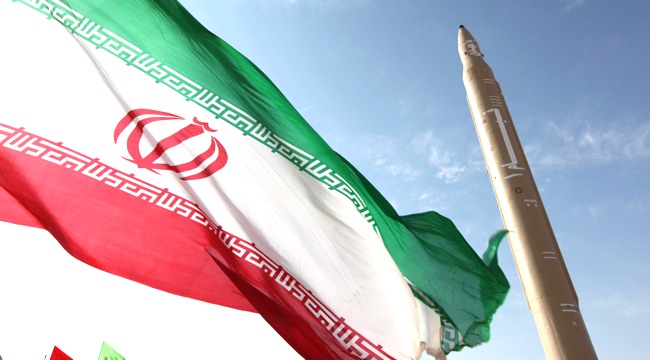
On Sunday, Iranian President Hassan Rouhani delivered a press conference in Tehran, and he vowed that the Iran Nuclear Deal would bring a better year for the country. Now, Tuesday sees the Islamic Revolutionary Guards Corps (IRGC) test-firing a series of ballistic missiles in defiance of new U.S. sanctions. These new sanctions were placed on Iran in January after implementation day of the Iran Nuclear Deal (which saw several freed U.S. hostages, not including Robert Levinson). And the ballistic tests are said to be a defiant display of “deterrent power” and a demonstration of Iran’s ability to defend itself against “any threat against the [Islamic] Revolution.”
The IRGC’s Brigadier General Amir Ali Hajizadeh declared that this display should stand as a statement that Iran won’t stop developing deterrent ballistic missiles. Naturally, the international community’s collective eyebrows shot into the air, for most IRGC missiles are capable of reaching Israel. Iran also launched these missiles from several silos across the country, which appears to send a message that these silos are fully operational.
Reuters has details of a nighttime silo operation, which saw the test-firing of a medium-range missile. This footage aired on the State-run Press TV and only showed one firing, but the IRGC says several missiles were indeed fired across the country. Press TV also aired footage of October launches, which are what prompted the new January sanctions:
The United Nations said the October test, which took place after Iran reached a nuclear deal with world powers in July, violated Security Council Resolution 1929, which barred Iran from undertaking any work on nuclear-capable ballistic missiles.
That resolution expired when the nuclear deal was implemented in January, but a new resolution then came into force under which Iran is “called upon” not to undertake any work on missiles “designed to” deliver nuclear weapons.
General Hajizadeh warned that Iran would not obey the missile sanctions, which he describes as “excessive demands” designed “to weaken our missile capabilities.” This latest act fits a pattern of IRGC behavior:
The IRGC has long pushed back against attempts from the international community to regulate its nuclear and missile activities. It opposed the nuclear agreement reached by moderate President Hassan Rouhani and the major powers, which severely restricts its nuclear program in exchange for relief from sanctions.
Unfortunately for those concerned about these test-firings, President Rouhani does not control the IRGC, which remains under the power of the supreme leader, Ayatollah Ali Khamenei. Although these missiles are reportedly large enough to carry nuclear warheads, Tehran insists that the missile program is strictly related to national defense, and these missiles aren’t equipped to carry a nuclear bomb. The White House issued a statement to say these test-firings did not violate the nuclear deal, but they’re still considering bringing the issue before the United Nations Security Council.
(Via Yahoo, US News & World Report, Tasnim News Agency & Reuters)
